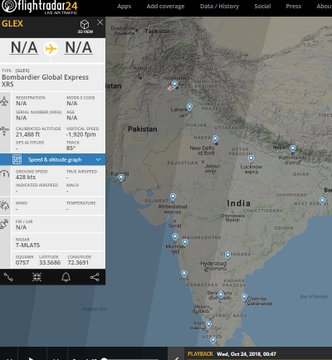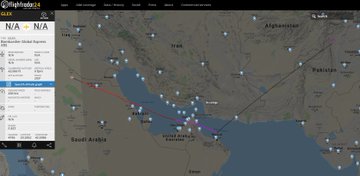M WAQAR..... "A man's ethical behavior should be based effectually on sympathy, education, and social ties; no religious basis is necessary.Man would indeed be in a poor way if he had to be restrained by fear of punishment and hope of reward after death." --Albert Einstein !!! NEWS,ARTICLES,EDITORIALS,MUSIC... Ze chi pe mayeen yum da agha pukhtunistan de.....(Liberal,Progressive,Secular World.)''Secularism is not against religion; it is the message of humanity.'' تل ده وی پثتونستآن
Friday, October 26, 2018
A delegation of notables from different minorities communities of Larkana district called on the Chairman Pakistan Peoples Party Bilawal Bhutto at Naundero House
A delegation of notables from different minorities communities of Larkana district called on the Chairman Pakistan Peoples Party Bilawal Bhutto Zardari at Naundero House on Friday and apprised him about their grievances and problems.
Taking notice of the complaints of encroachment on houses and worship places of non-Muslim communities, the PPP Chairman directed the former Sindh Home Minister and MPA Suhail Anwar Siyal to ensure that such encroachments are evacuated immediately.
Bilawal Bhutto Zardari also stressed that 5% job quota reserved in the government jobs should be implemented in letter and spirit.
He said that PPP’s Federal government launched Benazir Income Support Programme to reduce poverty and unemployment but the rightist parties like PTI and PML-N were dragging the people below the poverty line through their anti-people policies.
PPP Chairman further said that providing employment to the jobless youth was the top priority of the PPP adding that despite paucity of funds Sindh government has initiated Union Council Based Poverty Reduction Programme (UCBPRP), which will be implemented in Larkana district soon.
PPP leaders, MNAs and MPAs who were present during the meeting include Nisar Ahmed Khuhro, Mukesh Chawla, Lalchand Ukrani, Abdul Fatah Bhutto, Khrusheed Junejo, Suhail Anwar Siyal, Hizbullah Bughio, Perveen Bashir Qaimkhani, Nida Khuhro, Seemi Farhat Soomro, Khair Mohammad Shaikh, Mohammad Ali Bhutto, Kalpana Devi and others.
Did a top Israeli official ( Israeli Prime Minister Benjamin Netenyahu ) just visit Islamabad?
Most of it is still just speculation but reports suggest that Israeli Prime Minister Benjamin Netenyahu might have visited Pakistan during the last 48 hours.
According to details, Israel’s top newspaper Haaretz’s English version editor reported in his tweet yesterday that a flight from Israeli capital Tel Aviv had landed in Islamabad.
It was a business jet according to the senior journalist, who claims that the flight left Tel Aviv and after a brief stay in Amman left for Pakistan. This is the usual practice for the Israeli jets to fly to countries where it is not recognized legitimately.
The tweet says:
Israelibizjet flew from TLV to Islamabad, #Pakistan
, on the ground 10 hours, and back to TLV.
Cleared flight-plan with usual 5min groundtime trick in Amman
M-ULTI glex
Although Avi Scharf did not mention the Israeli PM in his tweet, another tweet from The Spectator Index says that the Israeli PM ‘has made a secret visit to a country that does not have diplomatic relations with Israel’
BREAKING: Reports that Israeli PM Netanyahu has made a secret visit to a country that does not have diplomatic relations with Israel
Connecting the dots, it is likely that the country where Israeli PM flew to last night was Pakistan.
Interestingly, Pakistan might not have been the only country Israeli PM has visited recently. During the last 2 weeks, Netanyahu has visited Oman as well. Two days ago, Azerbaijan’s military chief had also visited Israel and the visit had been termed a ‘clear message to Iran‘.
Both the countries are neighbors to Iran. And so is Pakistan. Considering Pakistan Prime Minister Imran Khan’s recent visit to Saudi Arabia, this could well be preparation for a major maneuver in the region.
https://www.nayadaur.tv/2018/10/did-a-top-israeli-offical-just-visit-islamabad/
The Khashoggi Crisis: A Blessing In Disguise For Pakistan’s Imran Khan – Analysis
By James M. DorseyThe death of Saudi journalist Jamal Khashoggi is proving to be a blessing in disguise for cash- strapped Pakistani Prime Minister Imran Khan. Mr. Khan’s blessing is also likely to offer Saudi Arabia geopolitical advantage.
On the principle of all good things are three, Mr. Khan struck gold on his second visit to the kingdom since coming to office in August.
Mr. Khan was rewarded for attending Crown Prince Mohammed bin Salman’s showcase investors conference in Riyadh, dubbed Davos in the Desert, that was being shunned by numerous CEOs of Western financial institutions, tech entrepreneurs and media moguls as well as senior Western government officials because of the Khashoggi affair.
In talks with King Salman and the crown prince, Saudi Arabia promised to deposit US$3 billion in Pakistan’s central bank as balance of payments support and to defer up to US$3 billion in payments for oil imports for a year.
Saudi Arabia declined Mr. Khan’s request for financial aid during his first visit to the kingdom in September but was willing to consider investing billions of dollars in a refinery in the Chinese-operated Arabian Sea port of Gwadar as well as in mining but was reluctant to acquiesce to Pakistani requests for financial relief.
Saudi Arabia’s subsequent agreement to provided finance is likely to help Mr. Khan reduce the size of the US$8-12 billion bailout he is negotiating with the International Monetary Fund (IMF).
Speaking in an interview before leaving for Riyadh, Mr. Khan said he was attending the conference despite the “shocking” killing of Mr. Khashoggi because “unless we get loans from friendly countries or the IMF, we actually won’t have in another two or three months enough foreign exchange to service our debts or to pay for our imports. So we’re desperate at the moment.”
Pakistan’s foreign reserves dropped this month to US$8.1 billion, a four-year low and barely enough to cover sovereign debt payments due through the end of the year. The current account deficit has swelled to about $18 billion.Potential Saudi investment in the Reko Diq copper and gold mine as well as a refinery in Gwadar, both close to Pakistan’s border with Iran would give it a further foothold in the troubled province of Balochistan. Gwadar is a mere 70 kilometres down the coast from the Indian-backed Iranian port of Chabahar.Pakistani militants reported last year that funds from the kingdom were flowing into the coffers of ultra-conservative anti-Shiite, anti-Iranian Sunni Muslim madrassahs or religious seminars in the region. It was unclear whether the funds originated with the Saudi government or Saudi nationals of Baloch descent and members of the two million-strong Pakistani Diaspora in the kingdom.It was equally unclear how Saudi Arabia expected to capitalize on its rewarding of Mr. Khan in its competition with Iran for Pakistan’s favours.
Ensuring that Pakistan, home to the world’s largest Shiite minority, does not snuggle up too much to Iran has become even more crucial for Saudi Arabia as it seeks in the wake of Mr. Khashoggi’s death to enhance its indispensability to US President Donald J. Trump’s effort to isolate and cripple Iran economically, if not to engineer a change of regime in Tehran.
Mr. Trump sees Saudi Arabia as central to his strategy aimed at forcing the Islamic republic to halt its support for proxies in Yemen and Lebanon, withdraw its forces from Syria, and permanently dismantle its nuclear and ballistic missiles programs.Saudi financial support means that Mr. Khan may find it more difficult to shield Pakistan from being sucked into the US-Saudi effort.Insurgents last week kidnapped 14 Iranian security personnel, reportedly including Revolutionary Guards on the Iranian side of the border with Pakistan. Pakistan pledged to help liberate the abductees who are believed to have been taken across the border into Balochistan, long a militant and Baloch nationalist hotbed.“Members of terrorist groups that are guided and supported by foreign forces carried this out through deceiving and bribing infiltrators,” the Guards said in a statement that appeared to blame Saudi Arabia and the United States without mentioning them by name.
The incident is likely to heighten Chinese concerns that in a worst-case scenario, Saudi investment rather than boosting economic activity and helping Gwadar get out of the starting blocks, could ensnare it too in one of the Middle East’s most debilitating conflicts. China is further concerned that there would be a set of third-party eyes monitoring activity if and when it decides to use Gwadar not only for commercial purposes but also as a naval facility.Saudi investment could further thwart potential Chinese plans to link the ports of Gwadar and Chabahar, a prospect that Pakistani and Iranian officials have in the past not excluded. With Saudi financial aid, that may no longer be an option that Mr. Khan can entertain.Mr. Khan will have to take that into account when he travels to Beijing next week in a bid to secure Chinese financial support and convince Beijing to fast forward focusing the China Pakistan Economic Corridor (CPEC), a US$45 billion plus infrastructure and energy generation-driven Belt and Road crown jewel, on issues such as job creation, manufacturing and agriculture. Mr. Khan appeared to anticipate in his interview with Middle East Eye on the eve of his participation in the Riyadh investment conference that he would have reduced leeway by blaming the United States for increased tensions with Iran and hinting that Pakistan did not want to be drawn into conflict with the Islamic republic.
Said Mr. Khan: “The US-Iran situation is disturbing for all of us in the Muslim world… The last thing the Muslim world wants is another conflict. The worrying part is that the Trump administration is moving towards some sort of conflict with Iran.”
Imran Khan got Saudi loan for ignoring Khashoggi murder, but he still can’t woo investors
GUL BUKHARI
One thing was clear during Imran Khan’s trip to Saudi Arabia—that he was clueless about Pakistan’s economy.
Pakistan Prime Minister Imran Khan put his country’s economic desperation on full display during his visit to Saudi Arabia. And he didn’t let the horrific details of dissident journalist Jamal Khashoggi’s murder come in the way.
“Pakistan cannot afford to snub Saudis over Khashoggi killing,” Imran Khan had shockingly implied in his interview to Middle East Eye.
“Newly installed Pakistani Prime Minister Imran Khan has told Middle East Eye that his country must continue to prioritise good relations with Saudi Arabia despite the killing of Jamal Khashoggi because of its dire economic crisis,” the article read.
“We are desperate at the moment,” Khan added.
The A-listers of the investor, diplomatic and political world have pulled out of the Davos In The Desert conference in Saudi Arabia on the 23 and 24 October as a fallout of the Khashoggi murder.
But Imran Khan not only signalled, very nakedly, he would fall to any level of debasement and moral turpitude but also talked down the economy of his own country yet again. Some on social media even blamed Imran Khan’s statement for the KSE 100 index tumbling down close to 700 points. The Pakistan market only recovered and surged after he secured the $6 billion financial assistance deal from Saudi Arabia later.
What was meant to be a soft PR exercise before he left for Saudi Arabia – Khan flew in four foreign journalists for the first-ever interview – went horribly wrong. When their articles appeared, criticism poured in on his gaffes.
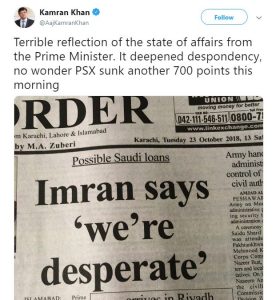
The government responded with a lie. It denied the interview ever took place. Naeemul Haq, assistant to Khan on political affairs, called the journalists “a group of foreigners touring Pakistan”.
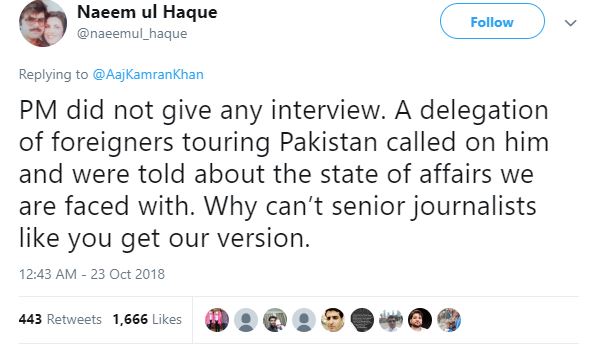
What followed should be mortifying enough for this government to desist from lying in future. Journalist Amanda Coakley provided evidence and contradicted Haq saying that they were “part of a UK media delegation” in a series of tweets.
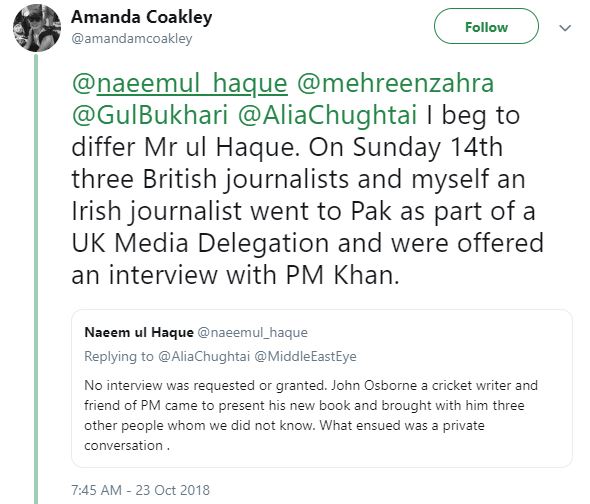
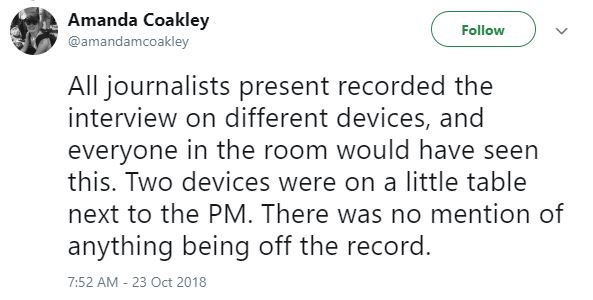
She explicitly disclosed that the Pakistan High Commission in London had arranged and paid for their visit to interview Khan.
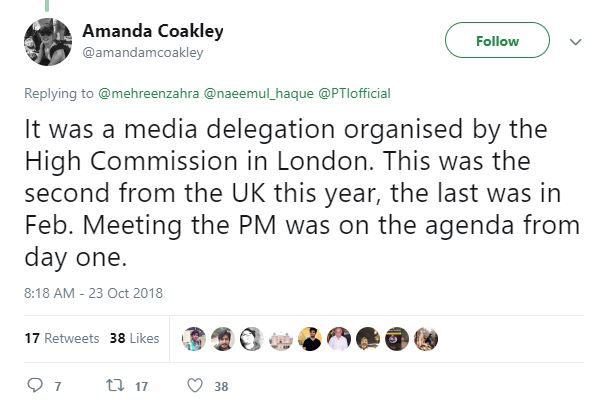
“Surreal” is how Issam Ahmed of the AFP described the entire episode.
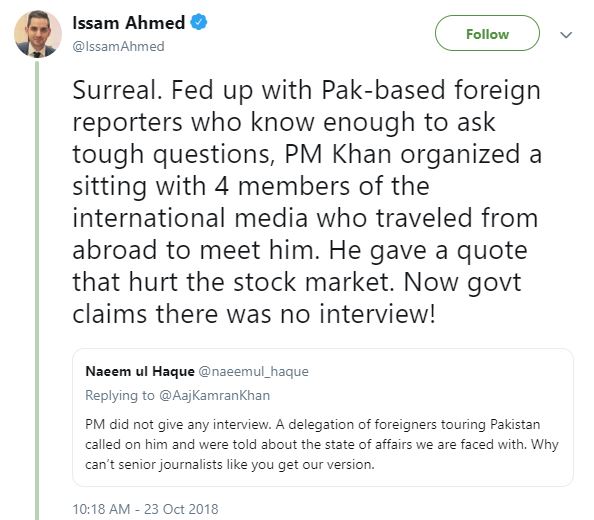
Amid this deeply embarrassing firestorm, Imran Khan proceeded to the investor conference in Saudi Arabia and asked the kingdom for loans for the second time in as many months. The earlier trip had been a failure, with no loans or deferred payments secured, but a whole new opportunity had opened up in the wake of Jamal Khashoggi’s murder and Mohammed bin Salman’s growing isolation. So, now the loan was more forthcoming in return for solidarity at a time when the Saudi authorities are being accused of murder and dismemberment.
Still, Khan could have used this opportunity to sell Pakistan. Instead, he addressed a nearly empty hall of investors of a Pakistan-specific event, and horrified investors with tales of how bad things were.
He launched into a lengthy lecture on the horror story the Pakistani economy is in because of the corruption of past governments (PML-N and the PPP); the dire need of loans and remittances from overseas Pakistanis via banking channels; and on clamping down on money laundering of funds. It could have been a political speech from a container. It was more about wild-goose chases than any real economic measures.
Asked how he planned to ensure transparency to build investor confidence in Pakistan, Imran Khan went into a wild oration about corruption again, on the destruction of state institutions, and opining on why countries become poor. These are the kinds of speeches and slogans that he also uses to appeal to his supporter base. It became vastly clear that he neither knew what he was talking about nor did he have the capacity to differentiate between international investors and his fawning fans at home.
The gold nugget he offered was that he planned to move away from mega infrastructure projects to human development because “mega projects give mega kickbacks, which leave a country indebted”.
It is quite another matter that Pakistan has never before planned or executed any mega project in the last 71 years, like Imran Khan’s own mother-of-all-megaprojects – the $180bn worth 5 million housing scheme, with no feasibility plan.
Khan may have been the only one in the room on whom this monumental irony was lost.
He ‘containered’ on with his harangue of strengthening institutions, corruption, cronyism, and claims of having made laws to help exporters. None of this contained specifics on transparency measure. It was a repeat of his five years of agitation speeches, while his government continues to appoint a slew of cronies like Zulfi Bukhari, Anil Mussarat, and Naeemul Haq to key positions.
Asked about employment generation, he mentioned his crown jewel housing scheme and urged the overseas Pakistanis to return, invest and create jobs. To every subsequent question, his answers remained the same: Corruption, money laundering, overseas Pakistanis, enabling environment. So much so that when one member of the audience asked what measures his government would take to make exit easier for private equity investors, he first alluded to the presence of the chairman board of investment, then minister finance, then minister or commerce and then repeated that he would create an enabling environment for FDI.
Imran Khan made one thing absolutely clear: He was clueless.
Instead of inviting investors to invest in the ailing economy, improve agriculture with water-saving techniques, or manufacture consumer goods, he recalled the alpine-to-coastline geographic features from Pakistan Studies to lure investors to invest in the tourism industry. All the while, denigrating the country again with reminders of terrorism, corruption, bad governance and money laundering.
It’s not clear whether this trip would attract foreign investment, or scare away those few who may have been considering investing in Pakistan in this politically unstable period. But the visit certainly prized a deposit of $3 billion for a year and deferred oil payments for three years from the Saudi crown prince Mohammed bin Salman as a visible result of standing by him amid murder allegations, with bowl in hand. Next level machinations such as conspiracy theories implicating the US itself in the murder by the famous spokesperson on the economy may also have helped.
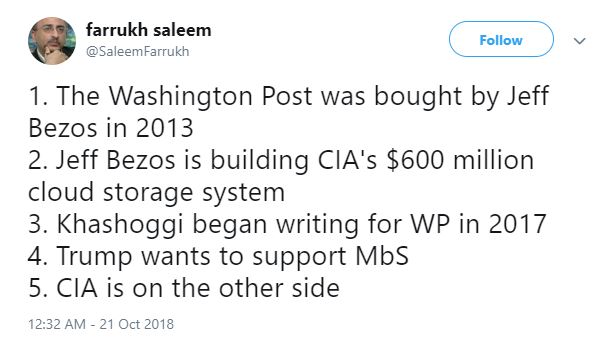
A small breathing space has been created with the Saudi loan for Pakistan. Next, Imran Khan plans to visit China and Malaysia with another bowl in hand. Will they be as amenable, given they haven’t recently been embroiled in high-profile murders, nor, therefore, stand isolated?
Pakistani Terrorist Hafiz Saeed's Outfits Taken Off Terror List By Imran Khan's Government
Mumbai terror attack mastermind Hafiz Saeed-led Jamaat-ud-Dawa (JuD) and Falah-i-Insaniyat Foundation (FIF) are no longer on the list of banned terror outfits in Pakistan as the presidential ordinance that proscribed them under a UN resolution has lapsed, a Pakistani media report said today.
NDTV is one of the leaders in the production and broadcasting of un-biased and comprehensive news and entertainment programmes in India and abroad. NDTV delivers reliable information across all platforms: TV, Internet and Mobile.
Subscribe to:
Comments (Atom)

